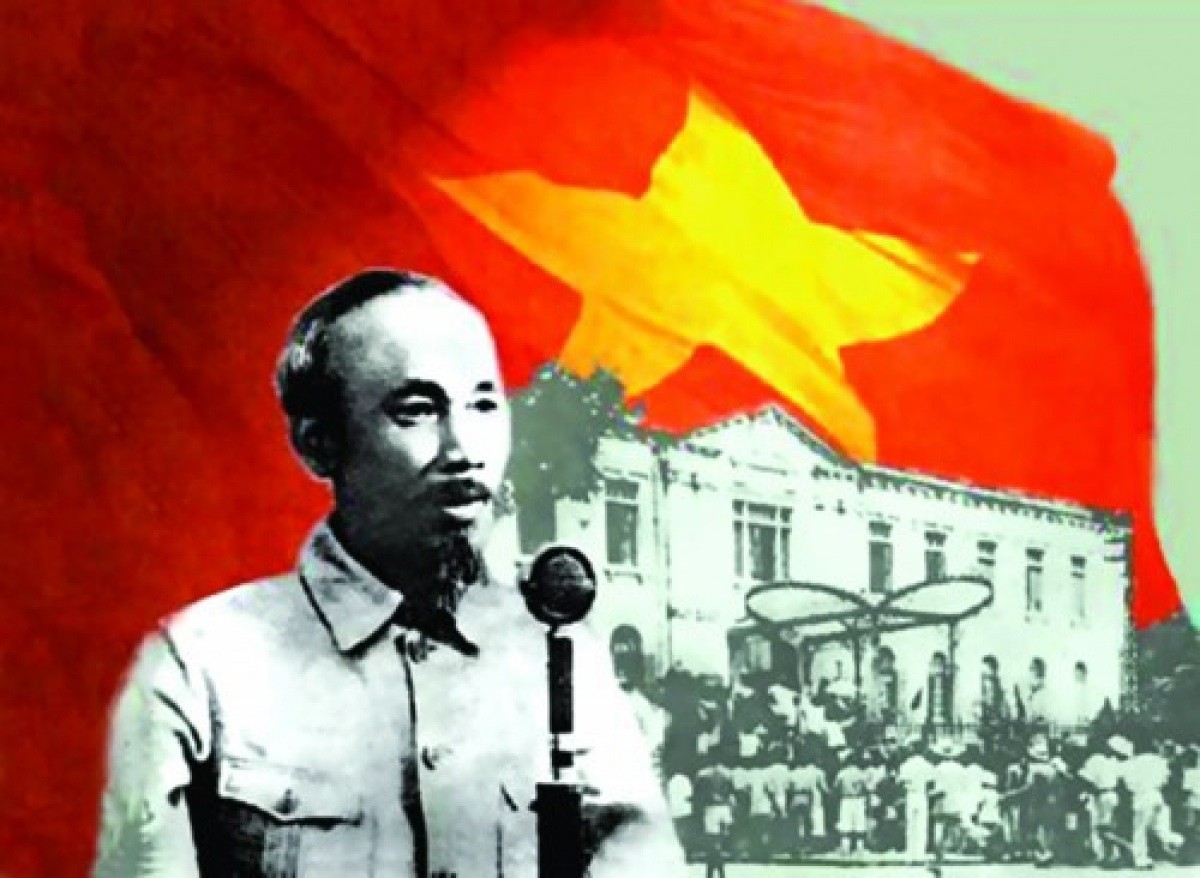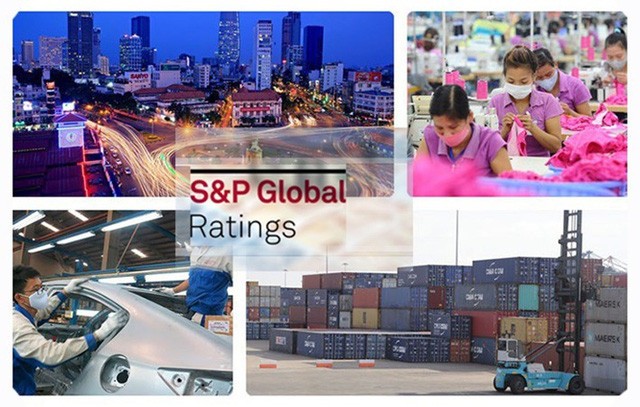
77 years of Declaration of Independence - the will and aspiration of Vietnam
Latest
 |
| On September 2, 1945, President Ho Chi Minh read the Declaration of Independence, proclaiming the birth of the Democratic Republic of Vietnam, now the Socialist Republic of Vietnam. |
The Declaration strongly demonstrates the true will and aspirations of the Vietnamese people that they would rather sacrifice everything than lose the country and live as slaves. Although 77 years have now elapsed, the value of the Declaration of Independence remains fresh.
To begin with, President Ho Chi Minh quoted several immortal lines from the 1776 Declaration of Independence of the United States of America and the 1791 Declaration of the Rights of Man and Citizen of the French Revolution.
Referring to human rights as an inevitability for an independent country, meaning the right to live, be free, and pursue happiness, President Ho Chi Minh, with his wisdom, practical experience and revolutionary practices in Vietnam, cleverly developed an irrefutable thesis on the rights of citizens. Broadly, it means that all the peoples on earth are equal from birth, and they have the right to live, to be happy and free.
From the concept of a man to the concept of a nation, he affirmed that national rights and human rights have a dialectical relationship and clearly interact with each other. An independent nation is a prerequisite for ensuring human rights, and conversely the strong implementation of human rights is used in order to promote the noble value and true meaning of national independence.
Assessing the Declaration of Independence, Japanese Professor Singo Sibata said that, “Ho Chi Minh’s famous dedication is that he had developed the rights of people into the rights of the nation, that all peoples have the right to determine their own destiny.”
Therefore, the 1945 Declaration of Independence can be considered not only a declaration of independence by the Vietnamese people, but also a declaration of human rights and the rights of subjugated peoples in their struggle against colonialism and imperialism. President Ho Chi Minh’s elevation of human rights to national rights can be viewed as his contribution to the ideology of human rights for humanity.
The right to national independence, the right to life, the right to liberty, and the pursuit of happiness represent the most fundamental values of human rights, although under the colonial and feudal systems previously enforced those rights were stripped and trampled upon.
Under the sound leadership of the Communist Party, Vietnamese people stood up to drive away colonialists, feudalists, and imperialists, wresting back independence, freedom, and human rights. Human rights in the country were not given by anyone, but instead, come as the result of the long struggle endured by the Vietnamese people. In his speech, President Ho Chi Minh declared, “The French have fled, the Japanese have capitulated, Emperor Bao Dai has abdicated. Our people have broken the chains which for nearly a century have fettered them and have won independence for the Fatherland. Our people at the same time have overthrown the monarchic regime that has reigned supreme for dozens of centuries. In its place has been established the present Democratic Republic.”
At the end of the Declaration of Independence, President Ho Chi Minh solemnly declared to the world, “Vietnam has the right to be a free and independent country - and in fact is so already. The entire Vietnamese people are determined to mobilize all their physical and mental strength, to sacrifice their lives and property in order to safeguard their independence and liberty.”
Through a rigorous and sharp argument, strong words, and persuasion encapsulated in over 1,000 words, the Declaration of Independence is a solid legal foundation that strongly affirms Vietnamese national sovereignty in front of the entire world. It lays the basis for the establishment of the rule of law in the country towards the goal of Independence-Freedom-Happiness. It illuminates the Vietnamese revolutionary path towards building a law-governed socialist state of the people, by the people and for the people, for the sake of a prosperous people, a strong country, democracy, justice, and civilization.
 |
| Vietnam has escaped from underdevelopment and becomes a middle-income developing country with an average economic growth of 7% per year. |
Despite 77 years having elapsed, President Ho Chi Minh’s views and thoughts reflected in the Declaration of Independence remain fresh in the present day during a period of national development and defence. Since then, Vietnamese people have constantly strived for human rights and have duly achieved positive and important results. People’s fundamental human rights in all areas, from politics to economics and social affairs are recognised, respected, protected, and guaranteed according to the Constitution and law. For its achievements, Vietnam was elected to the UN Human Rights Council for the 2014 - 2016 term.
The country’s position has changed a great deal since the Declaration of Independence was read in Hanoi 77 years ago. President Ho Chi Minh’s thoughts have served as a great source of spiritual strength for the entire nation, helping the entire Party, army, and people to overcome all difficulties and reap great achievements in the struggle for national reunification, socio-economic development, and international integration.
After more than 30 years since the implementation of the Doi Moi (Renewal) process, Vietnam has escaped from underdevelopment and become a middle-income developing country with an average economic growth of 7% per year. The country’s Human Development Index (HDI) has gradually improved, ranking 118 out of 189 countries and territories worldwide, according to statistics from 2019.
Furthermore, Vietnam has substantially expanded foreign relations and international integration to elevate its international prestige. It has so far established diplomatic relations with nearly 200 countries and territories around the world, actively built the ASEAN Economic Community and effectively joined numerous free trade agreements.
Whilst time may pass, the spirit of the 1945 Declaration of Independence will always live long in the hearts of generations of Vietnamese people, not only because of its historical and legal values that it sets out, but also because it contains the noble humane values of human rights.













